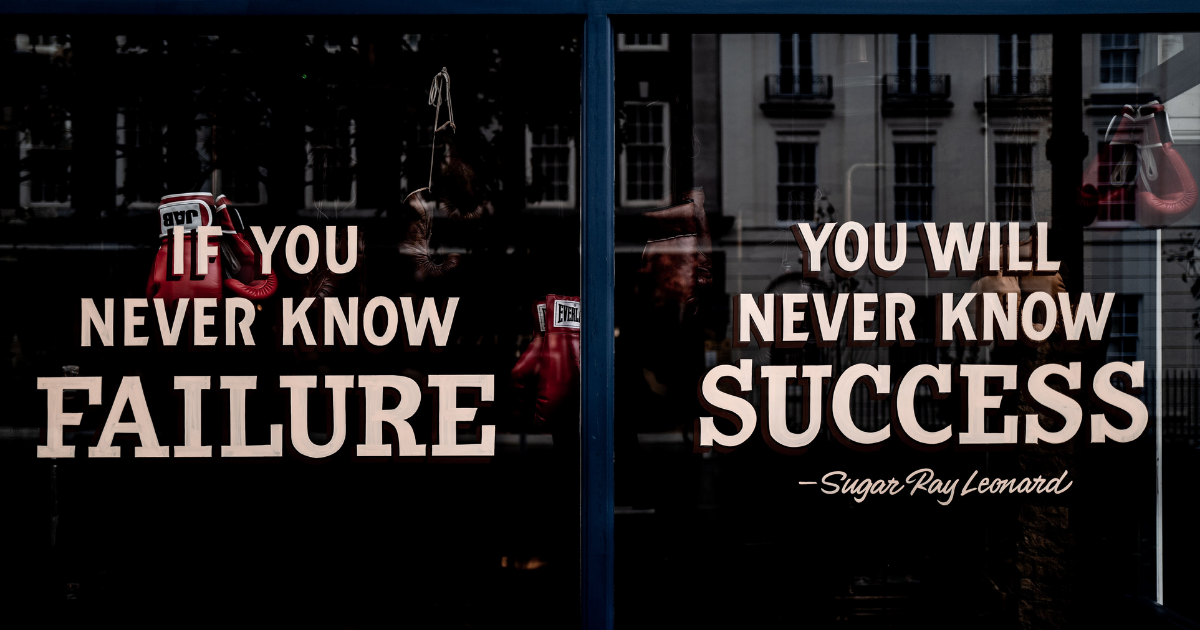We All Fail, But We're Better Because Of It
 Written by: Ashley Li, 3rd Year Western Student
Written by: Ashley Li, 3rd Year Western Student
Photo by: the blowup on Unsplash
For better or for worse, there’s no year more memorable than your first year of university. As a third year student, there are many things about first year that are now a blip on the radar. Simutext pigs bouncing around my screen, the integration formulas I spent hours memorizing, the numerous times I got lost on campus—all of these have faded from memory. Some things however, will stay with you forever. Namely, the first time I ever felt utterly paralyzed feelings of inadequacy.
My program is known for being competitive and like many of my peers, I graduated high school in the top of my class. I thought I understood how to succeed academically. Pay attention in class, work hard and you’ll do well. That’s the simple advice we’ve always been told, and that’s what I told myself. You don’t understand a concept? You need to study harder! Having trouble balancing school and extracurriculars? You need to be more efficient!
By the end of my first semester, university had taken its toll. I was trying to get the most out of my university experience socially and extracurricular-wise while also achieving all my goals. I had never been more stressed in my life, stuck in a cycle of self-blame. I couldn’t focus and I lost the motivation to pay attention in classes I had previously enjoyed. Anytime I hung out with friends or took a break, there was a lingering sense of guilt and dread. I felt like I was working all the time, but at the same time I was so burnt out that I got nothing done.
During my first finals season, I had several exams in a row, and I felt prepared for none of them. I pulled an all-nighter in library the night before my Physics 1301 exam. I was so anxious that I hadn’t been sleeping much at all, but I downed a total of 6 espressos and 2 cans of Red Bull and told myself to power through. This all culminated in me vomiting all over the floor of Taylor Library at 2am. I walked into my exam looking like death, but at the very least convinced that I had, in a way, done my best.
As awful as I felt during the exam, it was nothing compared to when our results came back. Judging by my final mark, I must have gotten something like a 55% on the final, instantly decimating the 4.0 GPA that I desperately tried to maintain at the expense of my health and happiness. In high school, physics had been my best subject, and the majority of the content covered in the course was review from high school, so why did this happen?
I compared myself to my peers who had done better, wondering if I just wasn’t smart enough. I told myself that I was stupid, undisciplined, a failure—blaming myself for every time I ever lost focus or slept in. But at the same time, I knew that there was no way I could force myself to work any harder. Was this how it was going to be? I would never reach my goals at this rate. Would I be able to make it into my program of choice? Should I even be in university? What was I going to do?
I felt like I had disappointed my parents, my teachers, and everyone who had ever believed in me. I had received a very generous scholarship entering university, and I felt so undeserving of it. Every suspicion I ever had about feeling like an imposter was confirmed. Looking back now, it was only one exam in one course, but at the time I felt like I had fallen into a hole that I could never climb out of.
My message is not that hard work doesn’t pay off. It absolutely does. Since my 1301 Physics exam, I have significantly improved my grades and made it into the program of my dreams, which I couldn’t have done without a strong work ethic. It was my cycle of blame and self-loathing that was the issue. I was so afraid of failure that it impeded my ability to succeed. The purpose of failure is not to be unkind to yourself or even to make calls about what are you and are not capable of. Rather than feeling guilty or assigning yourself negative labels, focus on the things you can control.
For me, that was taking care of my mental health and consciously shifting my emphasis away from obsessively achieving a certain grade, and towards understanding the concepts and really enjoying the process of learning again. I have found that resilience and the correct attitude, more so than ability, is what is most important for success. Everyone fails. The path you take to reaching your goal will never be as smooth as you originally imagined, but we’re probably better for it.
Published on

